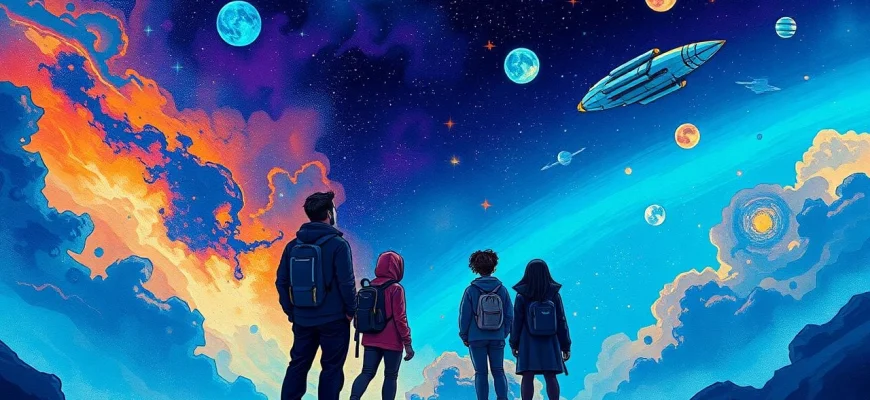If you're a fan of 'Star Trek: Discovery' (2017) and crave more thrilling sci-fi adventures with deep character arcs, political intrigue, and stunning visuals, you're in the right place. This article highlights 10 movies and TV shows that share the same spirit of exploration, complex storytelling, and futuristic settings. Whether you love the high-stakes drama or the interstellar world-building, these recommendations will keep you engaged long after the final credits roll.
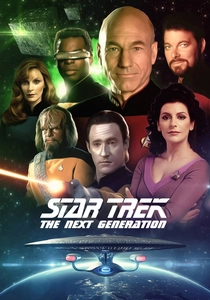
Star Trek: The Next Generation (1987)
Description: As part of the same franchise, Star Trek: The Next Generation shares the core values of exploration, diplomacy, and the betterment of humanity with Star Trek: Discovery. Both shows feature a diverse crew working together on a starship, though Discovery has a more serialized and action-oriented approach. The Next Generation's emphasis on philosophical and ethical questions is also a hallmark of Discovery's storytelling.
Fact: Patrick Stewart was initially reluctant to take the role of Captain Picard, as he feared being typecast. The show introduced the holodeck, which became a staple of the Star Trek universe. The Next Generation was the first Star Trek series to win a Hugo Award for its episode 'The Inner Light.'
 Watch Now
Watch Now 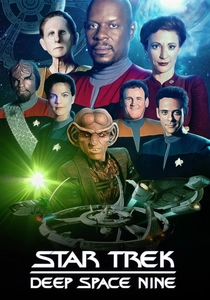
Star Trek: Deep Space Nine (1993)
Description: Star Trek: Deep Space Nine is similar to Star Trek: Discovery in its serialized storytelling and darker, more complex themes. Both shows explore the politics of the Star Trek universe, including war, espionage, and the moral ambiguities of leadership. Deep Space Nine's focus on a space station rather than a starship allows for deeper character development and long-term story arcs, much like Discovery.
Fact: Deep Space Nine was the first Star Trek series to feature a non-Starfleet main character, Quark. The show introduced the Dominion, one of the most formidable adversaries in the Star Trek universe. Avery Brooks, who played Captain Sisko, was the first African American to lead a Star Trek series.
 Watch Now
Watch Now 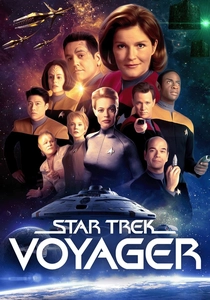
Star Trek: Voyager (1995)
Description: Star Trek: Voyager shares with Star Trek: Discovery the theme of a crew stranded far from home, navigating unknown territories and facing unprecedented challenges. Both shows feature a strong female captain and a diverse crew with unique skills. Voyager's blend of episodic and serialized storytelling, along with its exploration of the Delta Quadrant, parallels Discovery's journey through the Mirror Universe and beyond.
Fact: Kate Mulgrew's Captain Janeway was the first female captain to lead a Star Trek series. The show introduced the Borg Queen, a recurring antagonist in the Star Trek universe. Voyager was the first Star Trek series to feature a CGI-heavy episode with 'Threshold,' which became infamous for its controversial plot.
 Watch Now
Watch Now 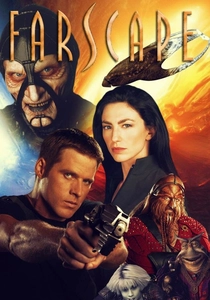
Farscape (1999)
Description: Farscape, like Star Trek: Discovery, follows a diverse crew on a ship navigating unknown territories, with a mix of episodic and serialized storytelling. Both shows feature complex characters, moral ambiguity, and a blend of science fiction and fantasy elements. Farscape's emphasis on character-driven narratives and its unique alien cultures resonate with Discovery's approach to world-building.
Fact: Farscape was a collaboration between the Jim Henson Company and Australian network Nine. The show's protagonist, John Crichton, is named after the author of Jurassic Park, Michael Crichton. Farscape was canceled after four seasons but was concluded with a miniseries, 'The Peacekeeper Wars,' due to fan demand.
 Watch Now
Watch Now 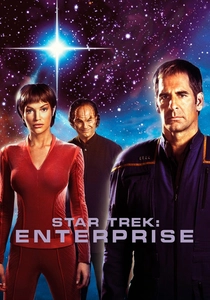
Star Trek: Enterprise (2001)
Description: Star Trek: Enterprise, like Star Trek: Discovery, is a prequel that explores the early days of space exploration and the formation of the Federation. Both shows feature a more rugged, less polished version of Starfleet, with a focus on the challenges of first contact and interstellar diplomacy. Enterprise's serialized Xindi arc shares similarities with Discovery's season-long storylines.
Fact: Enterprise was the first Star Trek series to feature a theme song with lyrics, 'Where My Heart Will Take Me.' The show was originally titled 'Enterprise' but was renamed 'Star Trek: Enterprise' in its third season to boost ratings. Scott Bakula's Captain Archer was the first captain to have a dog, Porthos, on board the ship.
 Watch Now
Watch Now 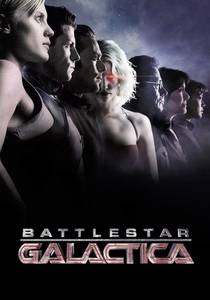
Battlestar Galactica (2004)
Description: Battlestar Galactica and Star Trek: Discovery both explore themes of survival, identity, and the blurred lines between humanity and artificial intelligence. Both series feature strong, morally complex female characters in leadership roles and tackle issues of war, diplomacy, and the search for a new home. The gritty, serialized narrative of Battlestar Galactica resonates with Discovery's darker tone compared to earlier Star Trek series.
Fact: Battlestar Galactica is a reimagining of the 1978 series of the same name. The show's opening theme, 'All Along the Watchtower,' is a cover of the Bob Dylan song, which plays a significant role in the plot. The series won a Peabody Award for its post-9/11 allegorical storytelling.
 Watch Now
Watch Now 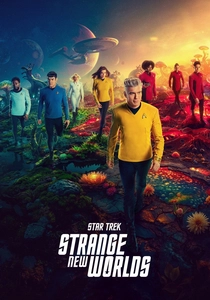
Star Trek: Strange New Worlds (2022)
Description: Star Trek: Strange New Worlds, like Star Trek: Discovery, is part of the modern Star Trek revival and features a mix of episodic and serialized storytelling. Both shows focus on a diverse crew aboard a starship, with a strong emphasis on character development and moral dilemmas. Strange New Worlds' lighter tone and return to classic Star Trek exploration themes provide a contrast to Discovery's darker narrative, but both share a commitment to the franchise's core values.
Fact: Strange New Worlds is a spin-off from Star Trek: Discovery, focusing on Captain Pike and the USS Enterprise. The show features Anson Mount, Rebecca Romijn, and Ethan Peck reprising their roles from Discovery. Strange New Worlds brings back the classic 'planet-of-the-week' format from the original Star Trek series.
 Watch Now
Watch Now 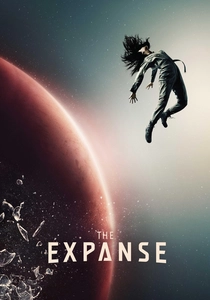
The Expanse (2015)
Description: The Expanse shares similarities with Star Trek: Discovery in its focus on political intrigue, complex character relationships, and a diverse crew navigating the challenges of space exploration. Both shows delve into the ethical dilemmas of advanced technology and the human condition in a futuristic setting. The Expanse, like Discovery, features a strong female lead and a serialized storytelling approach that builds over seasons.
Fact: The Expanse is based on a series of novels by James S.A. Corey, a pen name for authors Daniel Abraham and Ty Franck. The show was initially canceled by Syfy after three seasons but was revived by Amazon due to fan demand. The Expanse is praised for its realistic depiction of physics in space, including the effects of zero gravity.
 Watch Now
Watch Now 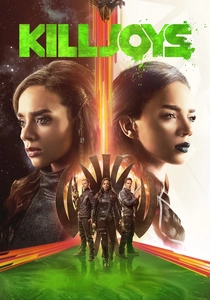
Killjoys (2015)
Description: Killjoys shares with Star Trek: Discovery a focus on a tight-knit crew navigating a politically charged universe, with a mix of action, humor, and drama. Both shows feature strong female leads and explore themes of loyalty, rebellion, and the fight against oppressive systems. Killjoys' serialized storytelling and space-faring adventures align with Discovery's narrative style.
Fact: Killjoys was created by Michelle Lovretta, who also created Lost Girl. The show was filmed in Toronto, Canada, and features a diverse international cast. Killjoys was praised for its progressive representation of LGBTQ+ characters and relationships.
 Watch Now
Watch Now 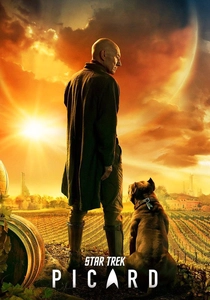
Star Trek: Picard (2020)
Description: Star Trek: Picard continues the story of Jean-Luc Picard and shares with Star Trek: Discovery a more mature, serialized narrative that delves into the darker aspects of the Star Trek universe. Both shows explore themes of identity, legacy, and the consequences of past actions. Picard's focus on artificial intelligence and its rights mirrors Discovery's exploration of sentient AI like Zora.
Fact: Star Trek: Picard marks Patrick Stewart's return to the role after 18 years. The show features several characters from Star Trek: The Next Generation, including Data and Seven of Nine. Picard's vineyard in France is a real location, Château de Picard, which was renamed for the show.
 Watch Now
Watch Now 
